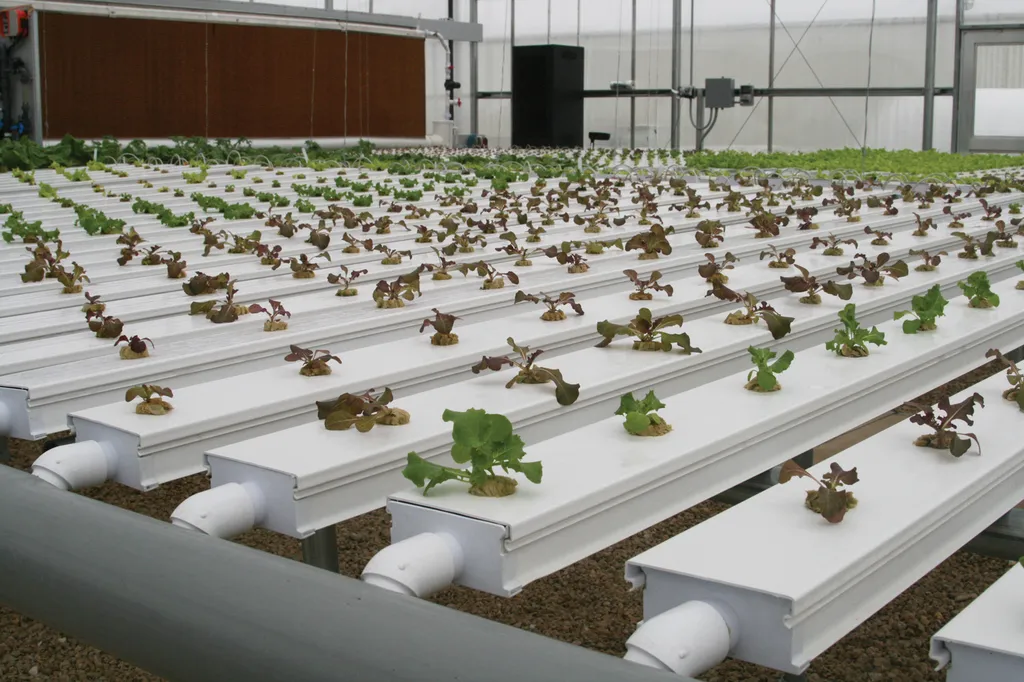Construction has commenced on a large hydroponic greenhouse in South Carolina, marking a significant step forward in local food production and job creation. The Agriculture Technology Campus (ATC), located in Early Branch, Hampton County, is set to revolutionize food production in the Eastern U.S. by leveraging advanced agricultural technology.
The project, developed by Agricultural Scientific, LLC and leased to Lokal Harvest USA, aims to reduce reliance on imported produce, lower carbon emissions, and enhance food security. Backed by USDA loans and private investment, the initiative is expected to have an estimated economic impact of $350 million.
The high-tech hub will feature a hydroponic greenhouse and processing facility designed to produce locally grown, organic tomatoes with 90% greater water efficiency than traditional farming. This method of farming will reduce dependence on imports from Mexico, California, and Canada, addressing supply chain vulnerabilities and excessive carbon emissions.
Zeb Portanova, CEO of Agricultural Scientific, emphasized the broader implications of the project: “This isn’t just about growing vegetables — it’s about reshaping the future of agriculture and re-shoring our critical U.S. supply chain.” By producing fresh, high-quality produce closer to consumers, the project aims to reduce food miles, cut emissions, and limit reliance on foreign countries.
The project has garnered significant support from local and state leaders, as well as federal agencies. Dr. Roy Hollingsworth, Chairman of Hampton County Council, expressed enthusiasm for the initiative: “We in Hampton County understand that good economic development has a direct tie to a better quality of life for all of our citizens, and we are excited about this innovative agricultural project.”
The ATC is expected to create over 1,000 direct jobs in rural Hampton County and the surrounding region. The project is also aligned with retailers’ goals of providing fresher, locally grown, organic, and environmentally responsible products. This initiative is poised to set a new standard for modern farming—one that delivers fresher produce, reduces environmental impact, and supports economic growth.
The project is backed by a capital stack of USDA Business & Industry and Food Supply Chain loans, enabling 400-plus acres of hydroponic greenhouses to produce year-round vegetables. This will cut water use and eliminate pesticides, further contributing to sustainable and environmentally friendly agricultural practices.
Chris Hurn, President of Phoenix Lender Services and Community Bankshares, Inc., highlighted the broader economic and environmental benefits: “By investing in local food production, we’re not only boosting U.S. agriculture but also bringing manufacturing back home, reducing reliance on foreign supply chains and creating lasting economic impact.”
The ATC is developed and owned by Agricultural Scientific, LLC and leased to Lokal Harvest USA, a subsidiary of Harvest House, one of Europe’s largest and most successful greenhouse operators. With a track record of supplying major retailers like Walmart, Kroger, Sam’s Club, Trader Joe’s, and Publix, Lokal Harvest USA is well-positioned to scale operations and meet the rising demand for fresh, locally grown produce.
This landmark project is more than just a local initiative—it’s a scalable model for the future of agriculture in the U.S. With federal support, private investment, and the expertise of global leaders in hydroponic agriculture, this initiative is poised to set a new standard for modern farming.
**Implications for the Future**
The construction of the ATC in South Carolina represents a significant shift in the agricultural landscape of the Eastern U.S. By leveraging advanced hydroponic technology, the project aims to address critical issues such as food security, carbon emissions, and supply chain vulnerabilities.
The initiative is expected to have far-reaching implications for local economies, job creation, and environmental sustainability. By reducing reliance on imported produce, the project will not only enhance food security but also contribute to lower carbon emissions through sustainable, localized production.
Moreover, the project aligns with the goals of major retailers who are increasingly seeking fresher, locally grown, and environmentally responsible products. This initiative is poised to set a new standard for modern farming, delivering fresher produce, reducing environmental impact, and supporting economic growth.
The success of the ATC could serve as a model for similar projects across the U.S., demonstrating the potential of advanced agricultural technology to transform food production and enhance local economies. With federal support, private investment, and the expertise of global leaders in hydroponic agriculture, the future of farming in the U.S. looks promising.
**Economic and Environmental Benefits**
The economic benefits of the ATC are substantial. The project is expected to bring $350 million in private capital investment and create over 1,000 direct jobs to rural Hampton County and the surrounding region. This influx of jobs and investment will have a significant impact on the local economy, improving the quality of life for residents.
Environmentally, the project aims to drastically shorten food miles, ensuring fresher produce

